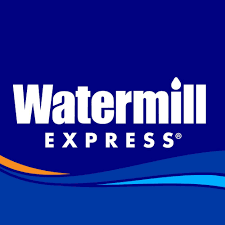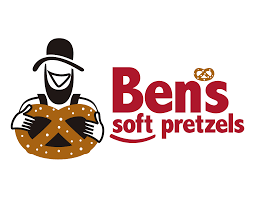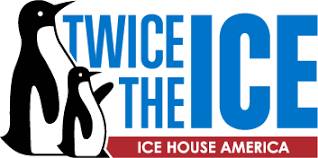
Pharmabox
Pharmabox offers an automated retail solution through its state-of-the-art vending machines, which are designed to provide a seamless shopping experience for customers.

Offer fresh, affordable drinking water and ice 24/7 with a tech-enabled, eco-friendly refill station model.
$460,000
Own and manage ATMs remotely with ACFN, a proven franchise focused on high-end locations and low overhead.
$38,000
Ice House America transformed the ice vending industry in 2003 by integrating exceptional manufacturing, cutting-edge engineering, and innovative technology.
$60,000

Xpresso Delight’s Coffee-As-A-Service model is revolutionizing how large businesses get their coffee.
$84,750

Ben’s Soft Pretzels offers fresh pretzels, bites, and stuffed snacks through a low-overhead, community-focused franchise.
$100,000
Alsie’s serves high-quality ice cream, milkshakes, and desserts through a community-focused, turnkey franchise model.
$150,000

SmartMarket Solutions offers automated vending powered by AI analytics and remote monitoring for efficient, tech-based retail.
$50,000

Twice the Ice delivers clean ice and water through smart vending machines with app integration and minimal owner upkeep.
$60,000

Reis & Irvy’s offers robotic kiosks serving customizable frozen yogurt, gelato, or sorbet in under 60 seconds with seven flavors, six toppings, and full automation—perfect for malls, airports, campuses, and more.
$160,950

Healthier 4U Vending offers state-of-the-art machines with healthy snacks, beverages, organic/gluten-free options, remote monitoring, and comprehensive training for a scalable business.
$30,000

HealthyYOU Vending provides state-of-the-art machines stocked with healthy snacks and beverages, featuring cashless payments and remote monitoring, with no franchise fees or royalties.
$50,000

Naturals2Go empowers aspiring entrepreneurs to make a difference by providing smarter choices in snacks, drinks, and entrees.
$52,000
Vending Machines Franchise Industry Overview
The vending machine franchise industry in the United States is full of amazing opportunities. For one, it requires no staff to manage. It can also be a low-cost investment, depending on the number of units you choose to purchase. And also, there are many different product options you can choose to sell, depending on your individual preferences.
What makes Franchise Fame’s vending machine business opportunities so appealing? With minimal upkeep and servicing and a low-cost entry into business, they’re an excellent choice for business-savvy aspiring entrepreneurs who would like to dip their toes into the world of franchising with a low investment. The US vending machine industry is on the rise overall.
Despite the Covid-19 pandemic taking its toll on offices and hotels, which are some popular places for vending machines to be positioned, the market is seeing an uptick. In fact, as recently as 2021, the global retail vending machine market size was valued at around $51.91 billion.
With a compound annual growth rate (CAGR) of 10.7% from 2022 to 2030, it is expected that demand for on-the-go snacks and beverages will rise and vending machine business owners will reap the rewards by catering to consumers’ busy lifestyles. So, what makes vending machine franchises so appealing? Let’s explore some of the rising trends below.
Why You Should Consider a Vending Machine Franchise Opportunity
There are many advantages of owning this type of franchise. Among these are the following:
- Vending machine franchises generally fall within the low-investment range, which makes them the perfect choice for aspiring entrepreneurs with a limited budget.
- It’s possible to operate the business with limited team members, thus keeping overhead costs low.
- Vending machine franchises offer a great opportunity for entrepreneurs to earn a passive income as they will not be required to be on-site to operate the machines.
- It’s also possible to operate your vending machine business on your own schedule. This flexibility means you can focus on other commitments or even a full-time job if you are not ready to jump head-first into the world of franchising as yet.
How Much Does It Cost to Open a Vending Franchise Business?
Initial investment ranges
The initial investment for a vending franchise can vary widely depending on the brand, the number of machines you operate, and the type of products offered. On the Franchise Fame vending franchise directory, you’ll find vending opportunities starting as low as $6,995 for smaller operations, with larger, multi-unit investments reaching up to $600,000. This range makes vending one of the most flexible franchise sectors, accessible both to entrepreneurs testing the waters and to those looking to scale quickly.
Typical fees
When evaluating a vending franchise, it’s important to understand the standard costs involved. These usually include:
- Franchise fee: A one-time payment to join the brand and access its business model, training, and support.
- Equipment purchase/leasing: The cost of vending machines, which may be brand-new or leased depending on the franchise agreement.
- Inventory and restocking: Regular replenishment of products, which will depend on whether you choose food, beverages, or other retail items.
- Location rent/lease: While many machines can be placed in high-traffic locations through partnerships, some franchises may require lease agreements with property owners.
- Royalties and ad fund contributions: Ongoing fees such as a royalty fee (a percentage of gross sales) and contributions to the ad fund, which supports brand marketing efforts.
Ongoing expenses and hidden costs
Beyond the initial investment and franchise fee, vending machine owners should budget for ongoing costs such as machine maintenance, product spoilage, transportation for restocking, insurance, and payment processing fees.
Some franchises may also require minimum purchases or technology upgrades to keep machines cashless and IoT-enabled. While these costs can add up, they are generally lower than in other franchise industries, especially since staffing requirements are minimal.
Franchise Fee Comparison Table for Top 10 Franchises
Below is a comparison table outlining key costs and requirements for some of the top US vending machine market opportunities. These figures provide an at-a-glance way to evaluate upfront costs, fee structures, and potential profitability across different business models.
| Franchise | Franchise Fee | Initial investment range | Royalty Fee | Ad fund | Min Net Worth / Liquid capital |
|---|---|---|---|---|---|
| Pharmabox | Not disclosed, request FDD | $100,000 – $150,000 | Not disclosed, request FDD | Not disclosed, request FDD | Not disclosed, request FDD |
| Watermill Express | $75,000 | $460,000 – $586,000 | 0% Initial royalty in certain programs | 0–2% As marketing contribution ranges | Not disclosed, request FDD |
| ACFN (American Consumer Financial Network) | $25,000 | Approx. $38,000 – $60,000 (varies by number of ATMs / territory) | No typical % royalty; ongoing service/processing fees apply | Ongoing marketing/advertising fee ~1% | ~$50,000 |
| IceBorn (Ice House America) | Franchise / operator fees vary by agreement type | Varies between ~$27,995 – >$200,000, depending on model | Variable royalty/fee, depending on agreement | Amounts may be flat fees or % | Not disclosed, request FDD |
| Xpresso Delight | $37,500 | ~$84,750 – $115,000 | Per-cup royalty ($0.11–$0.15) | Up to 3% | ~$250,000 |
| Ben’s Soft Pretzels | $25,000 | $100,000 – $160,000 | Not disclosed, request FDD | Not disclosed, request FDD | Not disclosed, request FDD |
| Alsie’s / Alsies | $25,000 | $150,000 – $350,000 | Not disclosed, request FDD | Not disclosed, request FDD | Not disclosed, request FDD |
| Smart Market Solutions | $25,000 – $50,000 | $50,000 – $200,000 | Not disclosed, request FDD | Not disclosed, request FDD | Not disclosed, request FDD |
| Power Locker | $30,000 | $30,000 – $150,000 | Not disclosed, request FDD | Not disclosed, request, FDD | Not disclosed, request FDD |
| Twice the Ice | $10,000 – $15,000 | $60,000 – $150,000 | ~9% app fee / royalty | Not disclosed, request FDD | Not disclosed, request FDD |
Note: Figures are representative of real location-based franchise opportunities and may vary depending on the franchisor and territory availability.
How to compare franchise fees
When evaluating vending franchises, don’t just look at the franchise fee in isolation. Here’s how to make smarter comparisons:
- Understand differences in fee structures: Some healthy snack franchises and smart vending models waive royalties but may have higher machine or product costs. Others charge lower franchise fees but require ongoing royalty fees and ad fund contributions.
- Analyze the total cost of ownership: The upfront costs are only part of the equation. Consider expenses like machine maintenance, restocking, insurance, and lease agreements. These can impact long-term profitability in the US vending machine market.
- Consider payback periods and ROI: Compare projected revenues against costs to estimate your payback period. Franchises aligned with growth trends (such as healthy snack franchises or cashless smart vending solutions) tend to have stronger ROI.
- Explore financing options: Many franchisors offer financing assistance or partnerships with third-party lenders to reduce barriers to entry. This can make scaling your location-based franchise opportunities more achievable, even if you’re starting with limited capital.
Finding Franchise Opportunities Near You in 2026
Filter by state
One of the biggest advantages of exploring vending franchises through Franchise Fame is the ability to discover location-based franchise opportunities tailored to where you live. Regardless of whether you’re in bustling states like California, Texas, Florida, or New York, or emerging markets in the Midwest and Southeast, you can filter by state to find the best options available.
Browse our state-by-state vending franchise listings to explore top brands in your area and identify high-traffic placement opportunities near offices, schools, shopping malls, and transit hubs.
US market trends and growth for 2026
The US vending machine market continues to expand as consumer preferences evolve and new technologies reshape the industry. Here’s what to expect in 2026:
- Many vending machine franchises offer food and beverage items for sale through a quick and convenient option.
- Other consumables that these machines can offer include phone cards, tobacco, lottery tickets, games/amusement, candy and confectionery, beauty and personal care, tickets, ice-cream, pharmacy, etc.
- It’s essential to strategically position your vending machine in locations such as corporate buildings, schools, malls, train stations, airports, and others.
- There’s a rise in zero-sugar beverages in terms of vending machine offerings, while high-sugar-content beverages are on the decline.
- Another trend worth considering is that low-calorie drinks tend to outsell other beverages by quite a high percentage. This is an indication that consumers are looking for healthier alternatives.
- Choosing between food, beverages, and other products? Market insights reveal that the beverage vending machine segment dominated the market as recently as 2021. Examples include coffee, tea, cocoa, energy drinks, diet soda, lemonade, flavored drinks, vitamin water and water bottles. Lobby rooms in hotels are quite a popular location for such vending machine placements.
- Interestingly enough, the beauty and personal care retail vending machine segment is expected to grow significantly, too. Examples include shaving creams, deodorants, makeup removers. Some of the most popular locations for these vending machines are shopping malls, spas, barber shops, and airports.
- In terms of payment acceptance for vending machines, the traditional route was accepting payments through coins and cash. While this was a long-term trend, there is a shift toward cashless payments where credit and debit cards as well as digital wallets can be accepted at vending machines that offer a point-of-sale terminal. The freedom to choose between paying in cash and paying with a card is up to the consumer to decide.
- Despite airports, train stations, malls, and other locations making up a big chunk of the locations for vending machines, the largest portion held by the vending market is to be found in offices with the largest revenue share that is expected to retain its dominance.
- Getting started in the vending industry has low to none staff costs.
- It’s expected that artificial intelligence (AI) and machine learning (ML) will become incorporated into vending machines in the future to customize product offerings, make recommendations, and optimize inventory management.
- When considering vending machine franchises for sale, it’s also a good idea to cater to health-conscious consumers by offering healthy food options such as fresh fruit, salads, and organic snacks.
- Another trend that’s likely to gain traction is vending machines that offer touch-free interaction, using voice commands or gesture control that minimize physical contact for health reasons.
- In terms of sustainability, it’s expected that there will be a focus on creating eco-friendly vending machines. These could have features such as energy-efficient cooling systems, use solar power, be manufactured using recycled materials, and offer biodegradable packaging.
- It’s expected that vending machines will become a part of the Internet of Things (IoT). Through connections with other devices, the ability to provide real-time data, predictive maintenance, and automatic inventory replenishment, business owners will be able to streamline their operations.
Regardless of whether you’re evaluating financing options, comparing ROI, or seeking high-demand niches like smart vending or healthy snack franchises, the outlook for 2026 shows strong growth and profitability across the sector.
Frequently Asked Questions About Vending Machine Franchises
What is included in the initial investment?
The initial investment typically covers your franchise fee, vending machines (either purchased or leased), product inventory for your first cycle, training, and support. Some brands also include technology features such as smart vending software and cashless payment systems as part of the upfront package.
What are the ongoing costs?
Ongoing costs can include inventory restocking, machine servicing, insurance, transportation, and site rental or commission fees if your vending machines are placed in high-traffic areas. Additionally, you may need to contribute to the franchisor’s royalty fee and ad fund, which support brand-wide marketing.
How do franchise fees vary?
The franchise fee can range from $0 for certain healthy snack franchises up to $30,000 or more for well-established brands. This fee provides access to the franchisor’s business model, training programs, and ongoing support. Always check if the franchise has waived royalties (common in vending) or requires a percentage of gross sales.
What are the investment requirements for vending machine franchises?
Most vending franchisors set minimum financial requirements to make sure franchisees can sustain operations. Typical requirements include:
- Franchise fee: Between $0 and $30,000, depending on the brand.
- Initial investment: Between $6,995 and $600,000, depending on machine count, territory size, and location type.
- Minimum net worth: Often ranges from $75,000 to $250,000.
- Liquid capital: Usually $30,000 to $100,000, ensuring you can cover upfront costs and early operational expenses.
Some franchisors offer financing or vendor partnerships to help reduce barriers to entry.
Are vending machine franchises profitable in 2026?
Yes, vending franchises remain a strong option for entrepreneurs in 2026. The US vending machine market is projected to keep growing, driven by healthy snack franchises, cashless payments, and growth trends in smart vending.
Profitability depends on factors such as:
- Strategic placement of machines in high-traffic location-based franchise opportunities (offices, gyms, airports, schools).
- Product selection: Health-conscious and specialty items often command higher margins.
- Managing costs such as keeping restocking, servicing, and location fees under control.
Many owners find that vending franchises offer attractive ROI and flexible business models, especially since staffing requirements are minimal. With recurring revenue and scalable potential, they continue to be one of the most accessible and profitable franchise options in 2026.
Unlocking Regional Opportunities for Vending Franchises
To help you identify the best markets for your vending franchise, we’ve divided the United States into four key regions—Northeast, Midwest, South, and West. Each region presents distinct opportunities for growth, driven by consumer convenience trends, location density, and the increasing demand for accessible on-the-go products.
Northeast:
Midwest:
- Illinois
- Ohio
- Michigan
- Indiana
- Wisconsin
- Minnesota
- Iowa
- Missouri
- North Dakota
- South Dakota
- Nebraska
- Kansas
South:
- Florida
- Georgia
- South Carolina
- North Carolina
- Virginia
- Maryland
- West Virginia
- Kentucky
- Tennessee
- Alabama
- Mississippi
- Arkansas
- Louisiana
- Texas
- Oklahoma
West:
- California
- Nevada
- Arizona
- Washington
- Colorado
- Oregon
- Utah
- Idaho
- New Mexico
- Alaska
- Hawaii
- Montana
- Wyoming


